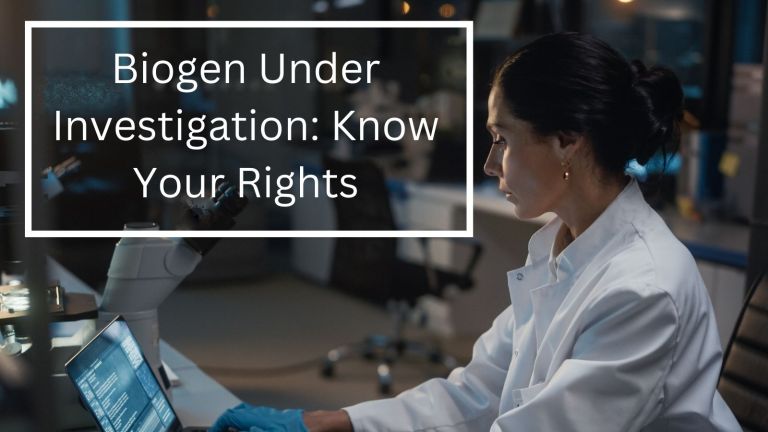Whistleblower Frances Haugen recently reported Facebook to the US Securities and Exchange Commission (SEC) for allegedly fraudulent statements Facebook made to investors. Millions of people all over the world tuned in to hear Haugen testify before Congress about the wrongdoing she witnessed. Right now, the staff attorneys at the SEC’s Enforcement Division are likely conducting an investigation into those allegations. If the attorneys conclude that Haugen was right and recommend Facebook be prosecuted, the SEC may bring an enforcement action. However, it’s equally possible that the Commissioners at the SEC will vote against bringing an enforcement action in a closed-door meeting. The public will never know that the vote took place, which Commissioners voted for or against prosecution, or anything else about that vote. This is a problem.
Every year trillions of dollars’ worth of securities are traded around the globe. With 60% of the world’s securities traded in the U.S., the country has a unique and important role to play in policing that market. This is a task that largely falls on the SEC. Recently, the SEC has been criticized for becoming a partisan tool and questions have been raised about whether the SEC is singling out non-US companies for prosecution over their US counterparts. A key issue underlying both these critiques is the lack of information surrounding who escapes SEC prosecution. As SEC Commissioners can let a company exit the enforcement process through a side door, there is a serious need for more transparency on the SEC’s enforcement votes.
1. How the SEC Chooses to Prosecute
The SEC is comprised of multiple departments that each play specialized roles when it comes to bringing an enforcement action. When a person reports a violation to the SEC, it will be reviewed by the Office of Market Intelligence (OMI), which is responsible for monitoring and analyzing tip-offs about potential violations. If the OMI believes there is credible evidence of a violation, it will refer the information to a specialized unit in the SEC’s Enforcement Division. SEC attorneys in these units, sometimes called ‘staff attorneys’, will begin an investigation to determine whether an enforcement action is warranted.
If the staff attorneys make a recommendation to bring an enforcement action, it is not a decision made lightly. It is usually done after review of thousands of documents, on-the-record interviews and extensive deliberation, sometimes even with the proposed target of the enforcement action. At base, staff attorneys only make a recommendation to bring an enforcement action when they have a clear view that prosecuting the company is warranted and there is a reasonable chance of success. The staff attorneys make their recommendation to the five SEC Commissioners in a closed-door meeting, and the Commissioners then vote on whether to accept the recommendation.
2. The Commissionners’ Vote
The five SEC Commissioners are political appointees selected by the President. While the President can only appoint three Commissioners from one political party, that still means that one party can effectively control the vote with 3 of the 5 Commissioners. While Commissioners are not instructed by their party on how to vote, like judges, Commissioners’ views on relevant legal issues are usually aligned with their party. In addition to the risk of political bias affecting the vote, there is also a risk of personal bias. Just last year a Wall Street Journal investigation found that over 100 federal judges failed to recuse themselves in cases where they or their family had a financial interest.
The problem with the Commissioners’ vote is not political oversight of the staff attorneys, which is a common feature of law enforcement policy in many countries. The problem is that when three Commissioners nix a potential enforcement action, it lets a company exit the enforcement process secretly through a side door without public record. The lack of public oversight in this process is a serious problem.
3. The Need for More Transparency
When it comes to law enforcement proceedings there is longstanding precedent that materials related to an investigation should remain confidential if their disclosure could interfere with an investigation. This makes perfect sense. If the Commission published when they voted to pursue a company, it could tip-off potential wrongdoers, giving them an opportunity to coordinate stories, intimidate witnesses or destroy evidence. However, when the Commission votes to shut down an enforcement action that was recommended by the staff attorneys, there is no investigation to interfere with. The very reason for the secrecy surrounding the vote is obviated.
Many companies facing SEC investigation are publicly aligned with political parties and are major donors to those parties. If Commissioners from one party were consistently nixing enforcement actions that involved companies aligned with their party, we would never know, nor could we find out about it. In the case of these votes, we could not even begin to examine whether there might be a conflict of interests given that we have no information on the votes or the companies that benefit from them.
As the public does not to know who is escaping enforcement actions, we are left in the dark as to whether Commissioners are exercising their power impartially or protecting party interests or personal interests. This concern is particularly acute when it comes to a major tech company like Facebook.
Facebook has been repeatedly cited as a company exercising major influence on elections in the US, a claim that the company regularly refutes. While the potency of Facebook’s influence is still an issue for debate, the outcome of US elections have been turning on increasingly small margins. If we assume (for argument’s sake) that the staff attorneys at the SEC recommend an enforcement action against Facebook based on Ms Haugen’s allegations, that question will be put to the current SEC Commissioners. With hotly contested midterm elections on the horizon, this will put Commissioners from both parties in an interesting position. There is no reason to speculate that the Commissioners won’t exercise their judgment impartially, but the fact that we will never be able to test that conclusion is troubling. If the Wall Street Journal’s investigation into federal judges can teach us anything, it’s that public oversight of the decisions of appointed officials is a healthy and necessary part of government. This is especially true when the government organization at issue is charged with regulating the world’s capital markets.
4. Conclusion
The SEC has been a trailblazer when it comes to obtaining transparency from companies and this is an issue on which the SEC needs to practice what it preaches. The US remains the home of one of the world’s largest equity markets, but that position is not guaranteed in the long term. In order to maintain that position, the US needs to demonstrate that it can operate a transparent and fair system of regulation. Critical to this is providing transparency regarding which companies face prosecution and which don’t. In order to achieve this, the SEC needs to publish the votes where staff attorneys have proposed an enforcement action and Commissioners have declined the recommendation.
John Peterson is the Managing Attorney of FBR, a firm that focuses on representing whistleblowers. He has worked for almost a decade on financial crime, corruption and FCPA cases around the globe. He regularly acts as an expert commenter in business and legal media on corporate crime and international corruption issues.
This article was first published by the Oxford Business Law Blog.

















